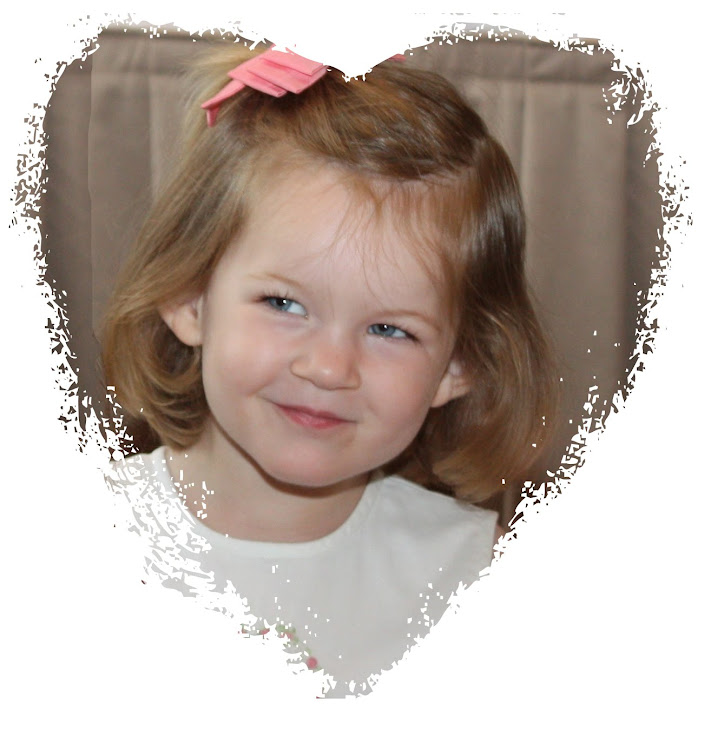We started our visit with another echocardiogram for our official second opinion. Karen, our echo tech, was amazing. She told us that has 22 years of experience with pediatric echocardiology, and it showed. It really helped me to understand the location of the VSD and the changes it was causing to the aortic valve.
As the echo was ending, we were met by another team member who took us on a tour of the hosptial. She showed us the admitting desk in the main lobby, and explained what we could expect on the morning of surgery. I learned that MUSC has a dedicated Pediatric Cardiac Intensive Care Unit (PCICU), which suprised me. It is a 13 bed unit, with windows by most every bed. The floor plan is open, so the nurses at the desk can see all of the beds all of the time.
Christine, one of the nurses, gave us a tour of the unit. Most likely, Lilly will still be intubated when she comes to the PCICU. She will have a central line, arterial line, chest tube, temporary pacing wires (just in case), and a foley catheter. Children are usually extubated on the day of surgery, but stay overnight in the PCICU. They allow 24 hour visitation, but families are sent out of the unit during shift changes. They do not allow parents to sleep at the bedside, but we would be permitted to stay all night if we are awake (?).
As soon as the endotrachial tube comes out, Lilly will be able to have some ice chips and clear liquids (like popsicles -- her favorite). I asked a lot of questions about pain management, and was reassured to learn from Christine that most kids don't need as much narcotics as I had imagined. Healthy kids, like Lilly, are usually discharged from the PCICU to go to the cardiac floor the day after surgery. The total hospital stay will probably be 5 days.
After seeing the PCICU, we went back to the office to meet with Dr. Bradley. He was very patient and unrushed with us -- much more like the pediatric surgeons I know rather than the thoracic guys. I liked him very much. He agreed with our cardiologist that it is time to repair the VSD. The chance for it closing on its own is low, and we run the risk of permanent damage to her aortic valve if we wait. If that happens, instead of being a simple procedure to close a VSD, it would require a valve replacement.
Scott Bradley, M.D. is an assistant professor of surgery in the Cardiothoracic Surgery department at The Children's Heart Center of South Carolina. Dr. Bradley graduated summa cum laude from Harvard University with a bachelor's degree in1980. After completing his undergraduate degree, Dr. Bradley attended the Harvard Medical School where he received his medical degree in 1985. Dr. Bradley completed his postdoctoral training from 1985-1995. Dr. Bradley completed two residencies, one as a general surgery resident at Massachusetts General Hospital and the other as a cardiothoracic surgery resident at the University of Michigan. Dr. Bradley was also a pediatric cardiac surgery fellow at the University of Michigan in Ann Harbor and a research fellow in fetal and cardiovascular surgery at the University of California in San Francisco. In addition to his education and training, Dr. Bradley is involved in numerous professional societies including the American Association for Thoracic Surgery, Society of Thoracic Surgeons and Charleston County Medical Society. Dr. Bradley also has a number of extramural professional activities, including program committee American Association for Thoracic Surgery and grant reviewer for The Children's Heart Foundation.
Dr. Bradley explained some more of the details about the surgery, including the usual post-operative course. I asked a lot of questions about the rest of the OR team, including the anesthesiologist and the perfusionist. He reassured me that for Lilly's procedure we will not require deep hypothermia and they will never have to stop her circulation during the procedure. That means that the risk for brain damage from the bypass machine is much less than it is with some other procedures. Any open heart surgery is risky, but he quoted us <1% risk for death or serious complications.
He has a very close working relationship with our cardiologist in Greenville, and once Lilly is ready for discharge from the hospital they would let us go back home. We can follow-up for our post-operative exams in the cardiologist's office here in our hometown.
We liked Dr. Bradley, the rest of the team, and the facilities at MUSC much more than we thought we would. The ability to load Lilly up in our minivan and drive home after we leave the hospital is very appealing.
It feels like a very big decision, but I think we are choosing between two very good options.



No comments:
Post a Comment